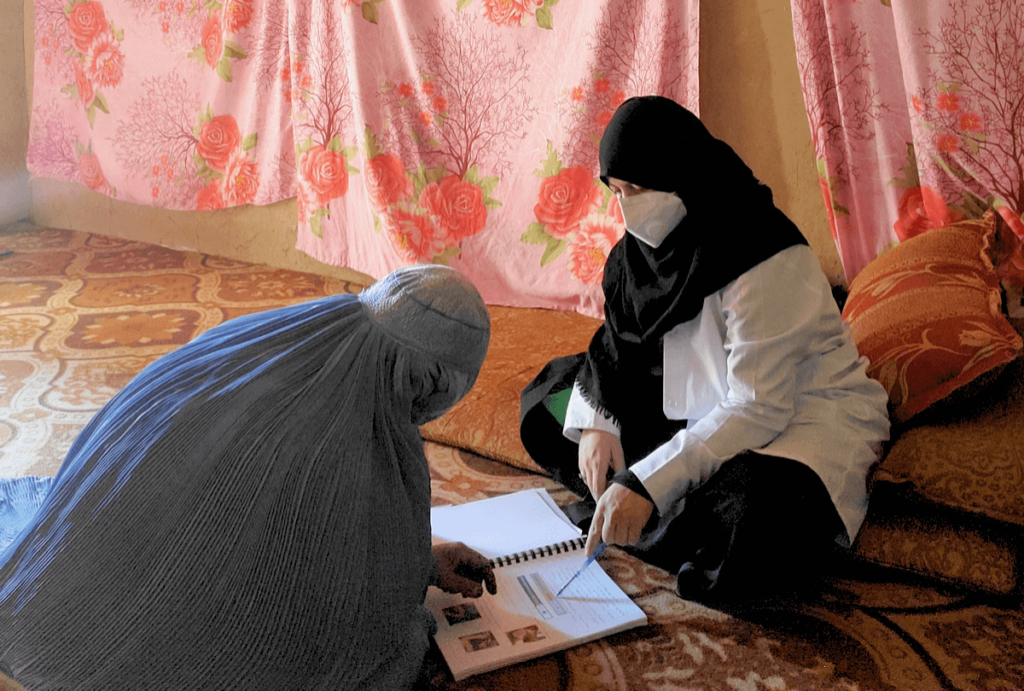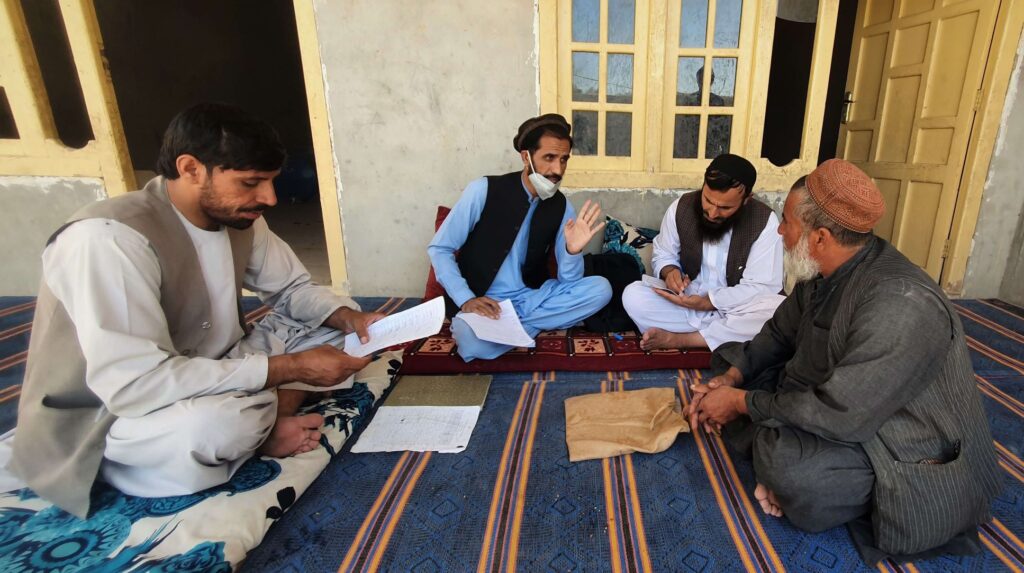Tackling TB in Conflict Settings: The Value of Community-Based Interventions in Afghanistan
Tackling TB in Conflict Settings: The Value of Community-Based Interventions in Afghanistan
By Jennifer Gardella

Despite being both preventable and curable, tuberculosis (TB) remains one of the world’s top infectious killers. Afghanistan, a country coping with political instability and conflict, faces a unique set of challenges in combatting TB, especially for women who make up some 54 percent of TB infections in the country. Limited mobility and difficulties reaching and affording medical care make women more vulnerable to TB, as does a widespread lack of knowledge about the disease. The COVID-19 pandemic and increased humanitarian needs have exacerbated these challenges, hindering years of progress toward curbing the spread of TB. But community health workers (CHWs) like Zohra* are on the frontlines, armed with the training and mentorship they need to identify, diagnose, and treat TB patients and ultimately save lives.
On the Frontlines in the Fight Against TB
Zohra, like all CHWs in Afghanistan, is often the first point of contact for people in her community in need of primary health care, especially in remote or otherwise hard-to-reach areas where access to health services is limited. CHWs play a particularly crucial role in preventing the spread of TB by helping to identify possible TB cases early and refer patients for diagnostic testing and treatment.
As members of the communities themselves, CHWs like Zohra* are well placed to build trust among their own neighbors and educate them about TB, its symptoms, and how it spreads. A housewife from Balkh province in northern Afghanistan, Zohra has served her community as a CHW since March 2022. “I wanted to continue my education [beyond high school], but after August 2021, it became impossible for me to do so,” she explains. “I wanted to be productive and support my people, so I went to the local health clinic and asked if I could become a CHW to help promote better health in our community.”

Zohra participated in a training geared toward equipping CHWs with the knowledge and skills to better serve the needs of their communities across a wide range of health topics, including TB detection. Led by Management Sciences for Health (MSH) under the USAID-funded Assistance for Families and Indigent Afghans to Thrive (AFIAT) project, the training is part of an integrated approach to identify and diagnose TB patients and link them to appropriate care. “[During the training, the AFIAT team] taught us how to conduct house-to-house visits to educate people about TB,” she says. “In addition to this training, the project team also conducts regular mentorship visits to our health post so we can continue our learning. Now, I can confidently inform my community about the disease, as well as identify presumptive TB patients and refer them to the nearby health clinic to get support.”
This training and mentorship have already proven to be critical for keeping Zohra’s community safe. In six months, she has sent nine samples from her neighborhood to the nearest testing site. “[The project] paid for the samples to be transported to the clinic where testing is available. This really helps, because our people cannot afford to [go there themselves], but not getting the tests done could be a risk to their lives.” Of those nine samples that Zohra sent for testing, one came back positive. “That patient is now receiving the treatment he needs to recover. I am happy with the support I’ve received. They have taught me a lot so I can help people in my community.”
Saving Lives by Engaging Communities
Strong results to date make the value of community-based TB interventions in complex settings like Afghanistan demonstrably clear. Since launching this intervention in November 2021, AFIAT has provided more than 1,300 CHWs—more than 580 of them women—with comprehensive training and regular mentorship. These efforts have contributed to the project’s significant improvements in TB metrics in seven AFIAT-supported provinces. After one year of the project’s interventions, TB case detection rate in these provinces increased by 12% while TB notification, which refers to reporting confirmed TB cases to health authorities, increased by 16% as compared to the baseline. The treatment success rate, which measures the number of TB patients who successfully completed treatment, also increased by 5%. Based on the initial success of this approach, AFIAT has recently scaled up to expand these efforts to seven additional provinces, reaching more communities and saving more lives.
Prioritizing the inclusion of CHWs in training and mentorship programs is key to overcoming the many obstacles to effective TB control in complex settings, and promoting the participation of female CHWs like Zohra in these efforts is especially crucial for ensuring that women can continue to access the health care services they need. While much work remains to be done to counteract the negative impacts of the last several years on the country’s TB programming, MSH is committed to engaging women and men at all levels of the health system—from the health facilities to the communities themselves—in the fight to end TB and improve health outcomes for all Afghans.
*Name changed for security reasons.